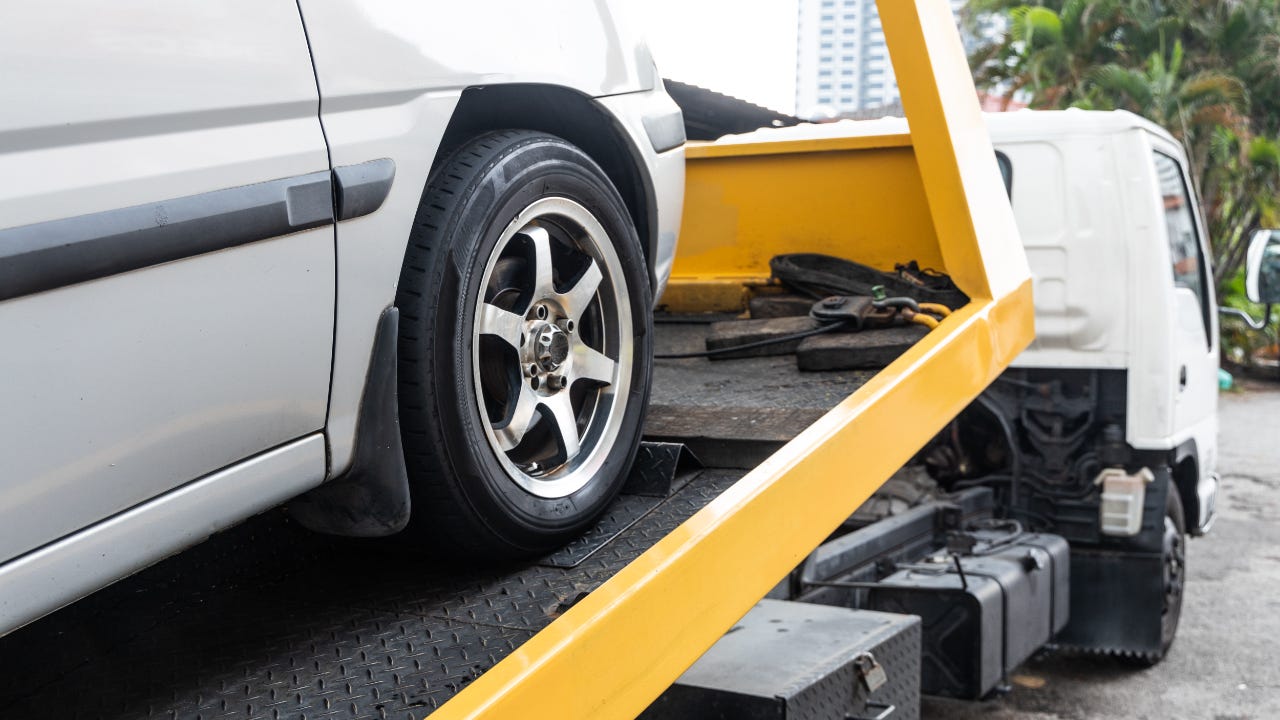Leased car repossession: What to know and how to prevent it

The Bankrate promise
At Bankrate we strive to help you make smarter financial decisions. While we adhere to strict , this post may contain references to products from our partners. Here's an explanation for .
Key takeaways
- If you miss payments on your leased car, it may be repossessed, which can be expensive and financially damaging.
- You can try to prevent repossession by making missed payments, contacting the leasing company or giving up the car voluntarily.
- Repossession can result in significant fees and damage to your credit, and you may still owe money to the leasing company.
Leasing is convenient for many people. But if you have trouble paying, your leased car might get repossessed. As with repossession after a car loan default, car lease repossession is expensive and financially damaging. But you can take action to prevent it from being repossessed — or at least ease some of the consequences.
Ways to prevent a leased car repossession
If the car you are leasing is about to be repossessed, there are some steps you can take to try to keep the vehicle.
Make the missed payments
Many lease contracts let you “cure” your lease if you make missed payments and pay accrued fees. For example, if you’re paying $250 a month and missed the last two monthly payments, you could send $750 — plus late fees — to the leasing company to cover your monthly payment and make up for the previous two to put you back in good standing.
In some states, you may be able to “redeem” a leased vehicle after repossession. Your lender should send you a notice outlining the steps you must take and how much you will have to pay to redeem your vehicle before it is sold at auction.
Contact the leasing company
If you reach out to your leasing company, it might be willing to work with you to help you keep the car. This could include letting you defer payments or adjusting the terms of your contract to make the lease more affordable.
A leasing company is not required to make any adjustments to your contract. Their willingness to help will depend on which company you have leased through, your previous payment history and whether you have notified them of financial difficulty.
Voluntary repossession
If you give up your car voluntarily, the leasing company will likely charge fewer fees than it would if it had to send someone to tow it. While you will still lose the car, voluntary repossession may save you money and help you recover more quickly. Not every lender will repossess your car, however. If the lender refuses, keep making payments and contacting the lender until it acts on the repossession.
How much a leased car repossession costs
Once your leased car gets repossessed, you aren’t free and clear from your debts. You will still owe money to the leasing company, and significant fees will likely be added to payments you already owed.
You can expect to pay:
- The costs of preparing the car for sale.
- The remaining balance of your lease, often reduced by the amount the company sells your car for.
- Any past due amount.
- Charges for excess mileage and wear and tear.
- Disposition fees, unpaid interest and other lease-end costs.
- Any costs incurred during the repossession, like towing and storage before auction.
Your credit will take a hit when your car is repoed. Unfortunately, there isn’t much you can do about that — you will have to wait until the default is off your credit report. In the meantime, it will be harder to qualify for new loans. And expect higher interest rates on the loans you are approved for.
If you fail to pay the leasing company for the repossession, you may be taken to court. If the court orders you to pay, you may be responsible for court costs and attorney fees in addition to the amount you already owed.
My car was repossessed. What are my rights?
Your rights depend on your state laws. As long as the repossession is not violent, forced or taken from a closed garage, it can occur at any time without notice.
You should remove your personal property from the vehicle before it is repossessed. If you don’t, though, the leasing company or a third-party company hired to repo your car must return any property within the vehicle.
And if your vehicle is sold for more than the amount you owe, you may be entitled to any surplus amount.
Can you get a repossessed leased car back?
Review your state laws before and after your car is repossessed. Once the vehicle is repossessed, your state may require the leasing company to provide the time and date of the auction. You might be able to purchase the car at the auction.
You may also be able to have your vehicle returned once the past-due amount and fees are repaid.
The bottom line
Dealing with a leased car repossession can be stressful. If you don’t prepare, you will face hefty fees and might have trouble affording a replacement vehicle. Contact your lender to see if there is any way to modify your lease agreement. And if that fails, try to prepare for repossession to minimize the negative impact on your credit and finances.
Related Articles



